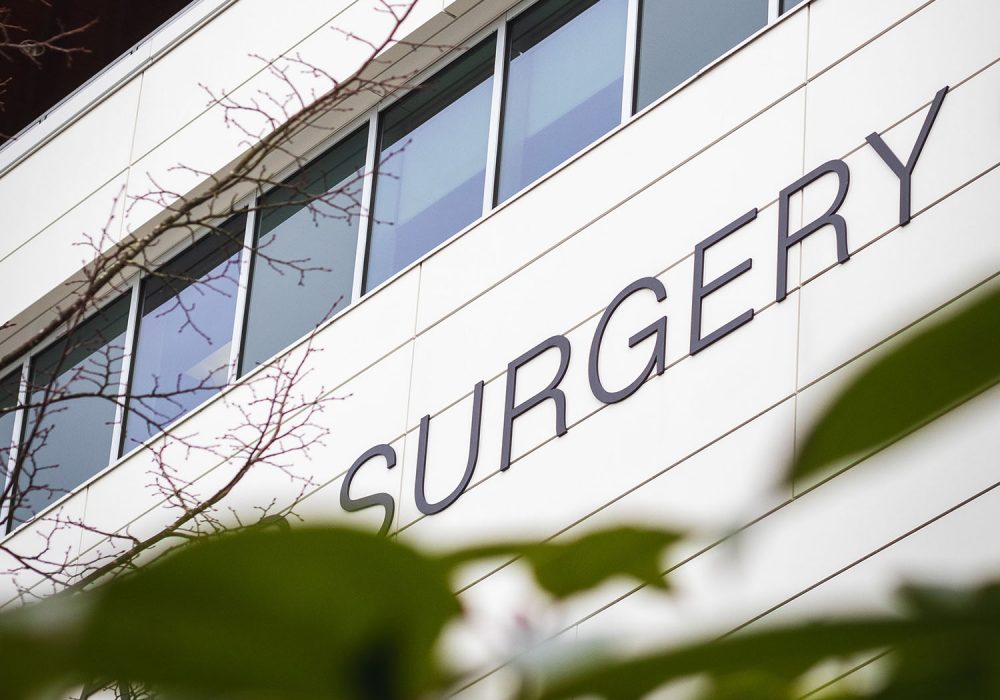Surgery During Coronavirus: How The Pandemic Might Affect Your Upcoming Procedure
We’re in the midst of a global pandemic—and, from the workplace to the medical field, there’s not an area of our daily lives COVID-19 hasn’t affected in some way. This is also true for non-COVID-related hospitalizations and surgeries. If you’ve scheduled surgery during Coronavirus, you likely have a laundry list of questions that need answering. Today, then, we’re breaking down everything we know about scheduled surgeries during these unsettling and unpredictable times.
Are hospitals allowing surgery during Coronavirus?
We’ll start with this: we can’t offer up a definitive yes or no to the question of whether or not your procedure will continue as scheduled. Hospitals across the nation have a wide and varied response to Coronavirus and what that means for non-emergency or non-essential surgeries. Some facilities are still allowing elective procedures—while others are asking patients to reschedule any surgeries that aren’t time-sensitive. Here’s what we know so far:
- Ohio has ordered hospitals to delay and reschedule dental and non-essential elective surgeries.
- New York Mayor Bill de Blasio is expected to sign an executive order that postpones all elective surgeries at hospitals in New York City.
- The Centers for Medicare & Medicaid Services issued voluntary recommendations asking hospitals across the country to hold off on non-essential elective procedures until the Coronavirus threat has passed. You can read their recommendations for medical facilities here.
Will my surgery go on?
Run through the following checklist to get a better idea of what you can expect if you’ve scheduled surgery during Coronavirus:
- Is your procedure elective? An elective procedure is a non-emergency surgery that’s scheduled in advance (think: plastic surgery of any kind, hernia surgery, colonoscopies, cataract surgery, many orthopedic surgeries, kidney donation, etc.). If your procedure is elective—as opposed to an emergency procedure that’s the result of a life-threatening illness or ailment—it might need to be rescheduled.
- Is your procedure essential? While your procedure may be elective (meaning it’s scheduled in advance), that doesn’t necessarily mean it can be put on hold without any repercussions. If it’s considered an essential surgery (i.e. vitally necessary for treating an ailment, illness, or disease), you have a better chance of your surgery going on as scheduled as compared to someone whose scheduled surgery during Coronavirus is non-essential. Essential surgeries include operations like an aneurysmectomy (surgical repair of an aneurysm), a caesarean, or cancer-related surgeries (like the removal of a malignant tumor).
- Are you able to get labs done? If your doctor ordered you to have certain labs done before your upcoming procedure, you’ll need to start there. Reach out to your laboratory or imaging center to find out if they’re open and still available to perform the labs or imaging you need done for your surgery. In certain states, labs are opting to close through the end of April for non-emergency patients. If you’re unable to get your labs performed in time, you’ll most definitely need to reschedule your procedure.
- Is your surgeon still performing surgery? Finally, talk to your surgeon’s office to get a definitive answer on whether or not your surgery will go on as scheduled. Keep in mind—many medical facilities and practices are inundated with calls right now, so call sooner rather than later and know that you might be on hold for a while.
Why are hospitals canceling elective surgeries during Coronavirus?
There are a number of reasons hospitals are opting to make the call to cancel non-essential elective surgeries during the COVID-19 pandemic. They include:
- State mandates requiring them to do so
- A shortage of medical supplies needed to protect hospital workers (like N95 masks)
- To conserve critical medical equipment (like ventilators)
- To save hospital beds and resources for an expected onslaught of COVID-19 patients
- Surgery suppresses the immune system, which means undergoing surgery could put a patient at a higher risk for contracting and getting seriously ill from COVID-19.
Should I choose to continue with surgery during Coronavirus?
Do you have any symptoms of—or any recent exposure to—Coronavirus?
Let’s start with this—if you have any symptoms of COVID-19, you absolutely need to self-isolate and hold off on any non-essential elective procedures. The same goes for if you’ve had contact with someone who’s tested positive for Coronavirus.
Does your procedure warrant using up vital resources?
Now more than ever, it’s so important we conserve hospital resources and medical equipment for those who need it most, and it’s critical we make sacrifices to help our hospital workers stay safe and healthy. If your procedure can wait—without causing further harm or threatening your overall health—we recommend putting it on hold until the COVID-19 pandemic is under control.
Have you thought about how your procedure will affect your immune system?
Surgery suppresses the immune system—and it’s so important you weigh that fact as you think about undergoing surgery during the Coronavirus outbreak. A suppressed immune system means you could be at a higher risk to develop and get seriously ill from COVID-19. In our professional medical opinion, if your surgery can safely wait, you should reschedule.
Are you considered high-risk for contracting and getting seriously ill from COVID-19?
If you fall into the group considered “high risk” for falling seriously ill from Coronavirus, we recommend holding off on your procedure (if it’s safe to do so) until after the threat passes. You’re considered high-risk if you:
- Are 65 years old or older
- Have asthma
- Are a smoker
- Have a serious underlying medical condition (at any age)—including:
- Heart disease
- Lung disease
- Chronic obstructive pulmonary disease (COPD)
- Emphysema
- Chronic bronchitis.
- Pulmonary hypertension
- Diabetes
- Cancer
Will rescheduling only serve to create more problems?
Here’s a tricky situation: What if your case isn’t immediately life-threatening, but holding off on surgery could result in more complications (and a greater use of critical medical resources) a few months down the road? A great example outlined by CNBC is this: If you’ve scheduled surgery during Coronavirus to get your frequently inflamed gallbladder removed, but then reschedule your procedure because it’s deemed non-essential…but then later have to have emergency surgery to remove your gallbladder, that only serves to take up more medical resources in the long run. If there’s a decent chance that holding off on surgery now could only serve to create the conditions for an emergency surgery in the near future, you should probably go through with your procedure as scheduled if your hospital and surgeon will allow it.
—————————————
The bottom line? Whether or not your surgery will go as scheduled on can really only be analyzed on a case-by-case basis—but, while there’s no black-or-white answer right now, know that the Mend Well team is here for you in any way we can be during these chaotic times. Together, we’ll get through this. Until then, stay healthy!
—————————————


